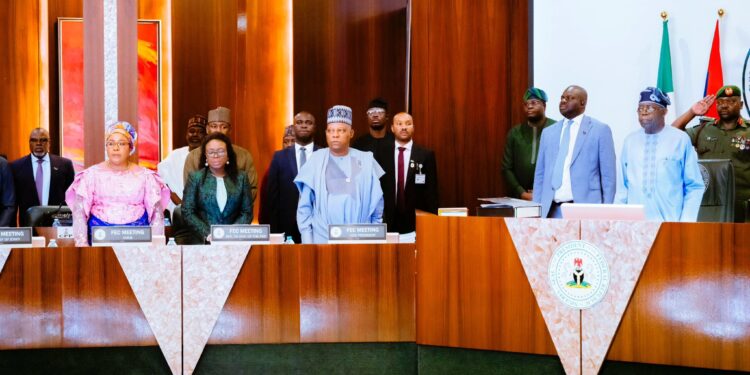
The Federal Executive Council (FEC) has approved N68.7 billion for key electricity projects for federal universities, teaching hospitals, and rural agricultural centres across the country.
The initiative is part of a broader N200 billion solar electrification plan secured by the Ministry of Power, aimed at boosting energy access in critical sectors such as health, education, and agriculture.
The Minister of Power, Adebayo Adelabu, announced the approval after the FEC meeting chaired by President Bola Tinubu at the State House, on Thursday in Abuja.
The approved N68.7 billion represents the first phase of the ministry’s funding pipeline, targeting the engineering, procurement, and construction (EPC) of solar mini grids under the Energising Education Programme (EEP), according to the News Agency of Nigeria (NAN).
“The Federal Executive Council (FEC) has approved N68.7 billion for key electricity projects in universities and teaching hospitals across Nigeria. He said the projects reflect the government’s resolve to ensure a steady electricity supply in vital sectors like health and education,” the source read in part.
The Power Ministry secured over N200 billion for solar mini grids to power eight universities, a teaching hospital, and rural farm clusters. This includes approved contracts for engineering, procurement, and construction under the Energizing Education Programme aimed at easing energy costs and ensuring stable electricity for our schools and hospitals.
The programme is managed by the Rural Electrification Agency (REA) and funded through the Renewed Hope Infrastructure Development Initiative.
According to Adelabu, the intervention is designed to address the chronic electricity shortfalls affecting higher education institutions and teaching hospitals across the country.
Key Beneficiaries
Institutions listed to benefit from this phase of the EEP include the University of Lagos, Ahmadu Bello University in Zaria, Obafemi Awolowo University in Ile-Ife, University of Nigeria in Nsukka, University of Calabar, University of Ibadan and its teaching arm, the University College Hospital, as well as the Federal University in Wukari, Taraba State.
The minister noted that the projects are expected to be completed within seven to nine months, citing previously completed solar installations at the University of Abuja, Nigerian Defence Academy, and Usmanu Danfodiyo University as indicators of feasibility and impact.
More insights
Beyond educational and medical institutions, the larger N200 billion allocations will support solar electrification in Agricultural Centres of Excellence and rural farm clusters nationwide. The goal is to enhance power access for micro and small-scale agro-processing businesses, particularly in underserved communities.
Adelabu emphasised that the solar programme is not just about electricity supply but also about driving inclusive economic growth and unlocking productivity in rural areas.





